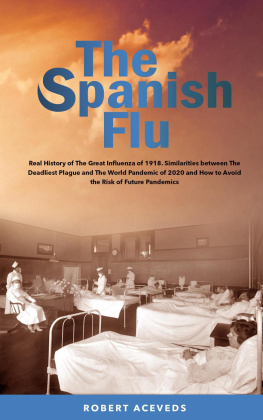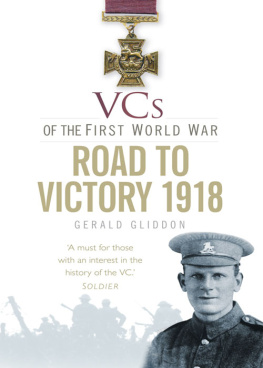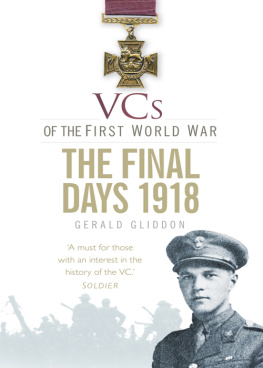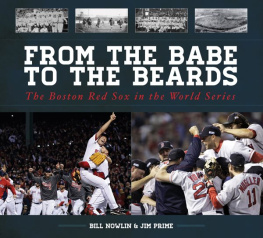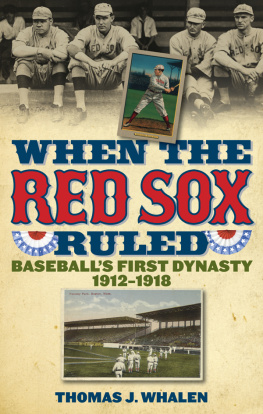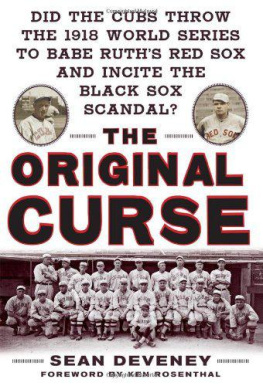Copyright 2018 by Skip Desjardin
All rights reserved. No part of this publication may be reproduced or transmitted in any form or by any means electronic or mechanical, including photocopy, recording, or any information storage and retrieval system now known or to be invented, without permission in writing from the publisher, except by a reviewer who wishes to quote brief passages in connection with a review written for inclusion in a magazine, newspaper, website, or broadcast.
Regnery History is a trademark of Salem Communications Holding Corporation; Regnery is a registered trademark of Salem Communications Holding Corporation
Excerpt from September 1918 from THE COMPLETE POETICAL WORKS OF AMY LOWELL. Copyright (c) 1955 by Houghton Mifflin Harcourt Publishing Company, renewed 1983 by Houghton Mifflin Harcourt Publishing Company, Brinton P. Roberts, and G. DAndelot Belin, Esquire. Reprinted by permission of Houghton Mifflin Harcourt Publishing Company. All rights reserved.
Cover design by Joshua Taggert
Cataloging-in-Publication data on file with the Library of Congress
ISBN 978-1-62157-620-4
e-book ISBN 978-1-62157-621-1
Published in the United States by
Regnery History
An Imprint of Regnery Publishing
A Division of Salem Media Group
300 New Jersey Ave NW
Washington, DC 20001
www.RegneryHistory.com
Books are available in quantity for promotional or premium use. For information on discounts and terms, please visit our website: www.Regnery.com.
For Karen,
who always knew
Some day there will be no war,
Then I shall take out this afternoon
And turn it in my fingers,
And remark the sweet taste of it upon my palate,
And note the crisp variety of its flights of leaves.
To-day I can only gather it
And put it into my lunch-box,
For I have time for nothing
But the endeavour to balance myself
Upon a broken world.
September 1918, by Amy Lowell
PROLOGUE
J ust a month after President Woodrow Wilson was inaugurated for a second termwon in the fall of 1916 under the slogan He kept us out of warhe felt he had to ignore the will of American voters and commit the United States to historys first global conflict. In April 1917, despite his mandate for peace, Wilson asked Congress to declare war on Germany.
Over a year later, as the summer of 1918 waned, Wilson and his administration had succeeded in what he believed to be his biggest challenge: not just changing the minds of most voters about the need for war, but somehow building a groundswell of public support, which he knew would be critical for success in waging that war. It is not an army we must shape and train for war, he acknowledged, it is a nation.
It was not an easy process, nor a period of American political history about which, in retrospect, we should be particularly proud. Wilson pursued this imperative with the single-mindedness of a missionary zealously determined to save his new converts. To fight you must be brutal
President Wilson understood from the start that the great power potential of the United States could only be wound up and let loose if there was near unanimity of purpose among the public. The very nature of the American populace made this difficult. America was then, as now, a collection of diverse religious and ethnic groups. The country was founded, in large part, on the principle of dissent: the reluctance of early settlers to adhere unanimously to any single philosophy or policy dictated by a government. In September 1918, nearly 15 percent of Americans were foreign-born. Whats more, a very sizable number of Americans were recent immigrants from Germany, still speaking the language, with family remaining abroad. Where were their loyalties? Could they be trusted?
Somehow, Wilson had to get all of these disparate factions onto the same page. How to convince the American people of this? How to mobilize them to action? His options were limited. Many Democrats felt betrayed by his policy reversal, and Republicans were not about to embrace a political opponent despite their muscular calls for war throughout his first term. Complicating matters, as historian David Kennedy has noted, was the fact that Wilson was an academic, not a traditional politician. He had been president of Princeton University before being elected governor of New Jersey in 1910 and then president of the United States just two years later. As such, he had no base of knowledge of how to manipulate the traditional levers of influence, nor how to move comfortably within existing structures of power. Without well-established bases in either party or Congress, he still had one constituency to which to turn: the public at large.
As a byproduct of its democratic system, the United States was a country governed by public opinion, as Wilsons attorney general Thomas Gregory noted. By means of the emerging art and science of public relations, the president and members of his administration believed that Americans could be swayed to accept, even embrace, the shared sacrifice that would be necessary to fuel a massive war effort.
Creel decided to wage a war of his ownon American hearts and minds. He was certain that his own role was critical to the countrys chances for victory and willing to employ every tactic imaginable in the service of his cause. As one historian described it, the mission of CPI was to organize patriotic enthusiasm where it existed and create it where it did not.
What we had to have was no mere surface unity, but a passionate belief in the justice of Americas cause that should weld the people of the United States into one white-hot mass instinct of fraternity, devotion, courage and deathless determination, Creel explained. The war-will, the will to win, of a democracy depends upon the degree to which each one of all the people of that democracy can concentrate and consecrate the body and soul and spirit in the supreme effort of service and sacrifice. What had to be driven home was that all business was the nations business, and every task a common task for a single purpose.
By late summer of 1918, Creel had been at work for over sixteen months, building public support, if not obsession, for the cause of the war. Typical of the all-out effort was the work of what became known as the Four Minute Men. Some 75,000 volunteers were organized and instructed to give short speeches nearly everywhere a crowd gathered: civic meetings, theaters, churches, union halls, and rural granges. Speakers were advised to be simple and concise, to organize their thoughts or memorize their speech in advance, and to focus on a single themeoften a patriotic or motivational slogan supplied to them by the CPI. By Creels count, the Four Minute Men spoke to over 134 million people in 755,000 presentations, every one having the carry of shrapnel.
No aspect of American life was untouched: not home or church, not work or school, not a Sunday drive or an afternoon at the ballpark. No opportunity to drive home the message was missed. The Massachusetts state government, for instance, asked Boston Symphony founder Henry Higginson to establish singing groups across the commonwealth. These Liberty Choruses would perform a selection of patriotic songs at nearly every kind of public gathering, often in tandem with a speech from a Four Minute Man. Even the normally staid New York Times was caught up in the fervor. Our people are aroused to the stern necessity of organizing victory and overwhelming Germany, because civilization and human liberty and all that thinking beings and freemen hold dear can be saved only in that way, the newspaper editorialized. The whole country is aflame with rage.
In Boston particularly, life would be plunged into chaos as the month of September began. Nowhere would the tentacles of the all-consuming war effort be as far-reaching, or squeeze as tightly. There, the battle for hearts and minds would whip up unwavering support for a division of home town soldiers off to fight the Kaiser and keep the world safe for democracy. Also there, ironically, the government effort to maintain morale at all costs would contribute to death on a massive scaleright in the communities those soldiers were fighting to protect.
Next page

